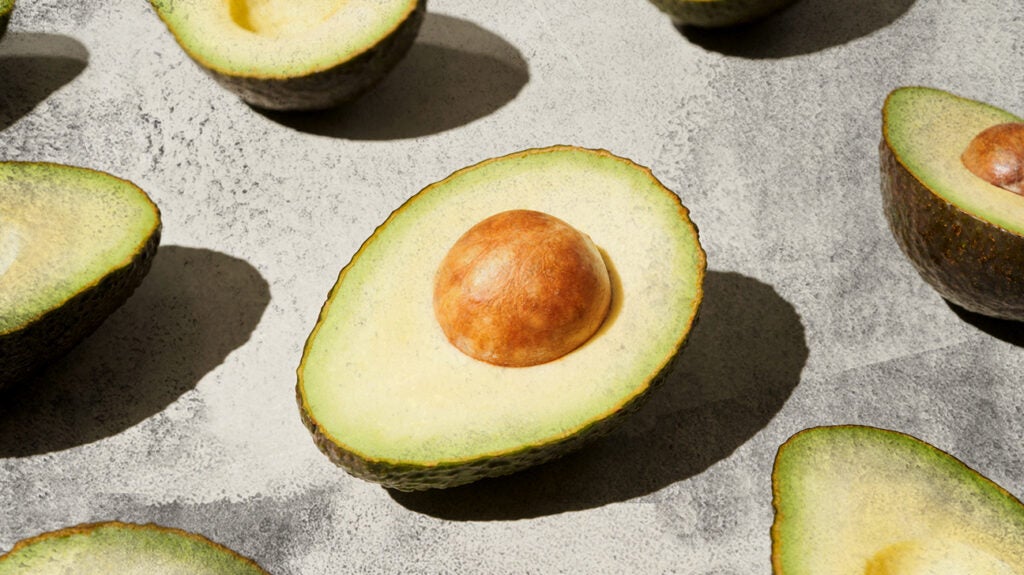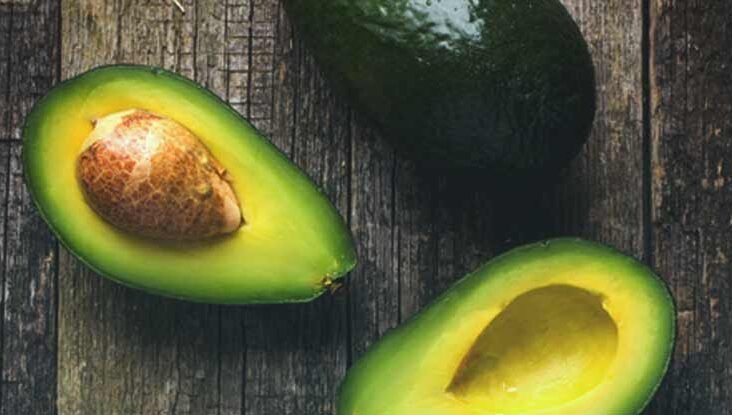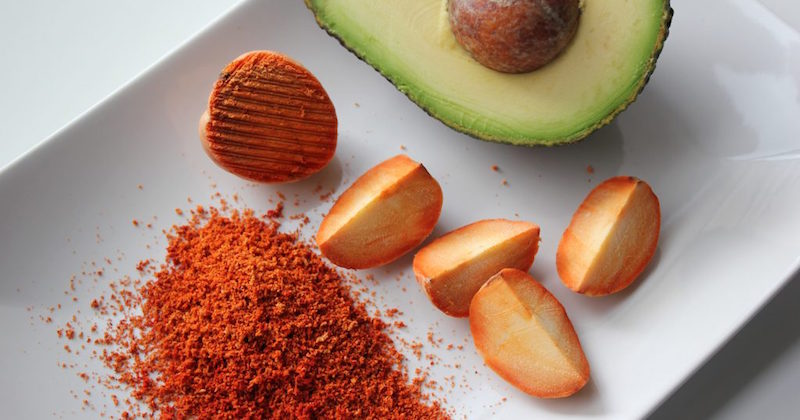When you slice open a creamy, delicious avocado, you’re likely focused on the rich, green flesh that’s perfect for toast, salads, or guacamole. But what about that large, brown seed in the center? Most people discard the avocado seed without a second thought, but recent buzz suggests that this often-overlooked part of the fruit may be a hidden gem for health and wellness.
Is Avocado Seed Edible?
One of the first questions that come to mind when considering the health benefits of avocado seed is whether it’s actually edible. The answer is yes, you can eat avocado seed, but there are a few important things to keep in mind.

Avocado seeds have a bitter flavor and a tough, fibrous texture that can make them unpleasant to eat raw. However, with proper preparation, you can make avocado seed more palatable and easier to incorporate into your diet. We’ll explore some methods for preparing avocado seed later in this article.
Avocado Seed: A Nutrient-Dense Superfood
What makes avocado seed so special? This often-discarded part of the avocado is a concentrated source of nutrients and beneficial compounds that may offer a range of health advantages. Let’s take a closer look at some of the key nutrients found in avocado seed:
Antioxidants Galore
One of the most impressive features of avocado seed is its high antioxidant content. Antioxidants are compounds that help protect your cells from damage caused by free radicals, unstable molecules that can contribute to oxidative stress and various health problems, such as cancer and heart disease.
Studies have shown that avocado seed contains a variety of antioxidants, including phenolic compounds, flavonoids, and proanthocyanidins. In fact, some research suggests that avocado seed may contain even higher levels of antioxidants than the flesh of the avocado itself.
Fiber for Digestive Health
Avocado seed is also a good source of dietary fiber, which is essential for maintaining digestive health. Fiber helps promote regular bowel movements, prevents constipation, and supports the growth of beneficial gut bacteria.
Incorporating avocado seed into your diet may help increase your fiber intake, which can contribute to better overall digestive function and a healthier gut microbiome.
Healthy Fats and Other Nutrients
In addition to antioxidants and fiber, avocado seed contains a range of other nutrients that may offer health benefits, including:
- Healthy monounsaturated fats
- Minerals like potassium, magnesium, and zinc
- Vitamins B and C
- Phytosterols, plant compounds that may help lower cholesterol levels
Potential Health Benefits of Avocado Seed
While research on the health benefits of avocado seed is still in the early stages, some studies suggest that this unique superfood may offer a variety of advantages for your well-being. Here’s a closer look at some of the potential health benefits of avocado seed:
Anti-Inflammatory Properties
Inflammation is a natural response of the immune system, but chronic inflammation can contribute to various health problems, such as heart disease, diabetes, and certain types of cancer. Some studies suggest that avocado seed extract may have anti-inflammatory properties, which could help reduce the risk of these conditions.
Blood Sugar Management
Avocado seed may also offer benefits for blood sugar control. Animal studies have shown that avocado seed extract may help regulate blood sugar levels and improve insulin sensitivity, which could be beneficial for people with diabetes or prediabetes.
Heart Health
The combination of healthy fats, fiber, and antioxidants found in avocado seed may contribute to better heart health. Some research suggests that avocado seed extract may help lower cholesterol levels and reduce the risk of heart disease, although more studies are needed to confirm these effects in humans.
Anticancer Potential
While more research is needed, some studies have explored the potential anticancer properties of avocado seed extract. The high antioxidant content and other beneficial compounds found in avocado seed may help protect against cellular damage and reduce the risk of certain types of cancer.
How to Incorporate Avocado Seed into Your Diet

If you’re interested in exploring the potential health benefits of avocado seed, you may be wondering how to safely incorporate it into your diet. Here are some tips for preparing and consuming avocado seed:
Drying and Grinding the Seed
To make avocado seed more palatable and easier to consume, start by thoroughly cleaning the seed and removing any remaining flesh. Slice the seed into thin pieces and allow it to dry completely, either by air-drying in a well-ventilated area for several days or using a dehydrator set to a low temperature.
Once the seed is completely dry, grind it into a fine powder using a food processor, blender, or mortar and pestle. The resulting avocado seed powder can be stored in an airtight container for later use.
Adding Avocado Seed Powder to Your Meals
Avocado seed powder can be incorporated into various dishes in small amounts. Here are some ideas:
- Add a teaspoon of avocado seed powder to smoothies or shakes
- Mix it into yogurt or oatmeal
- Sprinkle it over salads or soups
- Bake it into muffins or bread (use a small amount due to the bitter taste)
When adding avocado seed powder to your diet, start with a small amount (around 1/4 teaspoon) and gradually increase as tolerated. If you experience any digestive discomfort, discontinue use and consult a healthcare professional.
Precautions and Potential Risks
While avocado seed shows promise for its potential health benefits, it’s essential to approach its consumption with caution. Here are some important precautions to keep in mind:
Limited Research
It’s important to note that research on the health benefits of avocado seed is still limited, and most studies have been conducted in animals or test tubes. More human studies are needed to confirm the safety and effectiveness of avocado seed consumption.
Potential Toxicity
Avocado seeds contain small amounts of persin, a fungicidal toxin that can be harmful in high doses. While the amount of persin in a single avocado seed is generally considered to be low, consuming large quantities of avocado seed powder may increase the risk of toxicity.
Digestive Issues
Due to its high fiber content, avocado seed powder may cause digestive discomfort in some individuals, especially when consumed in large amounts. If you experience bloating, gas, or other digestive issues after consuming avocado seed powder, reduce the amount or discontinue use.
Interactions with Medications

Avocado seed may interact with certain medications, such as blood thinners or diabetes medications. If you are taking any prescription drugs, consult a healthcare professional before adding avocado seed powder to your diet.
Other Uses for Avocado Seed
Beyond its potential health benefits, avocado seed has a range of other interesting uses. Here are a few ways you can put this versatile seed to work:
Natural Dye
Avocado seed contains compounds that can be used as a natural dye for fabrics and textiles. The resulting color can range from light pink to deep red, depending on the extraction method and the materials being dyed.
Skin Care
Some people use avocado seed oil or powder in homemade skin care products, such as face masks or scrubs. The antioxidants and other beneficial compounds found in avocado seed may help nourish and protect the skin, although more research is needed to confirm these effects.
Gardening
Avocado seeds can be used to grow your own avocado tree, although it may take several years for the tree to bear fruit. You can also grind avocado seeds into a powder and use it as a natural fertilizer for your plants.
The Bottom Line
Avocado seed is a potentially powerful superfood that has garnered attention for its impressive nutrient profile and potential health benefits. From its high antioxidant content to its anti-inflammatory and blood sugar-regulating properties, avocado seed shows promise as a valuable addition to a healthy diet.
However, it’s important to approach avocado seed consumption with caution, as research on its safety and effectiveness is still limited. If you’re interested in incorporating avocado seed into your diet, start with small amounts, monitor your body’s response, and consult a healthcare professional if you have any concerns.
As more research emerges, we may discover even more ways to harness the potential of this often-overlooked superfood. From culinary uses to natural beauty and gardening applications, avocado seed is a versatile and intriguing ingredient that deserves a closer look.




